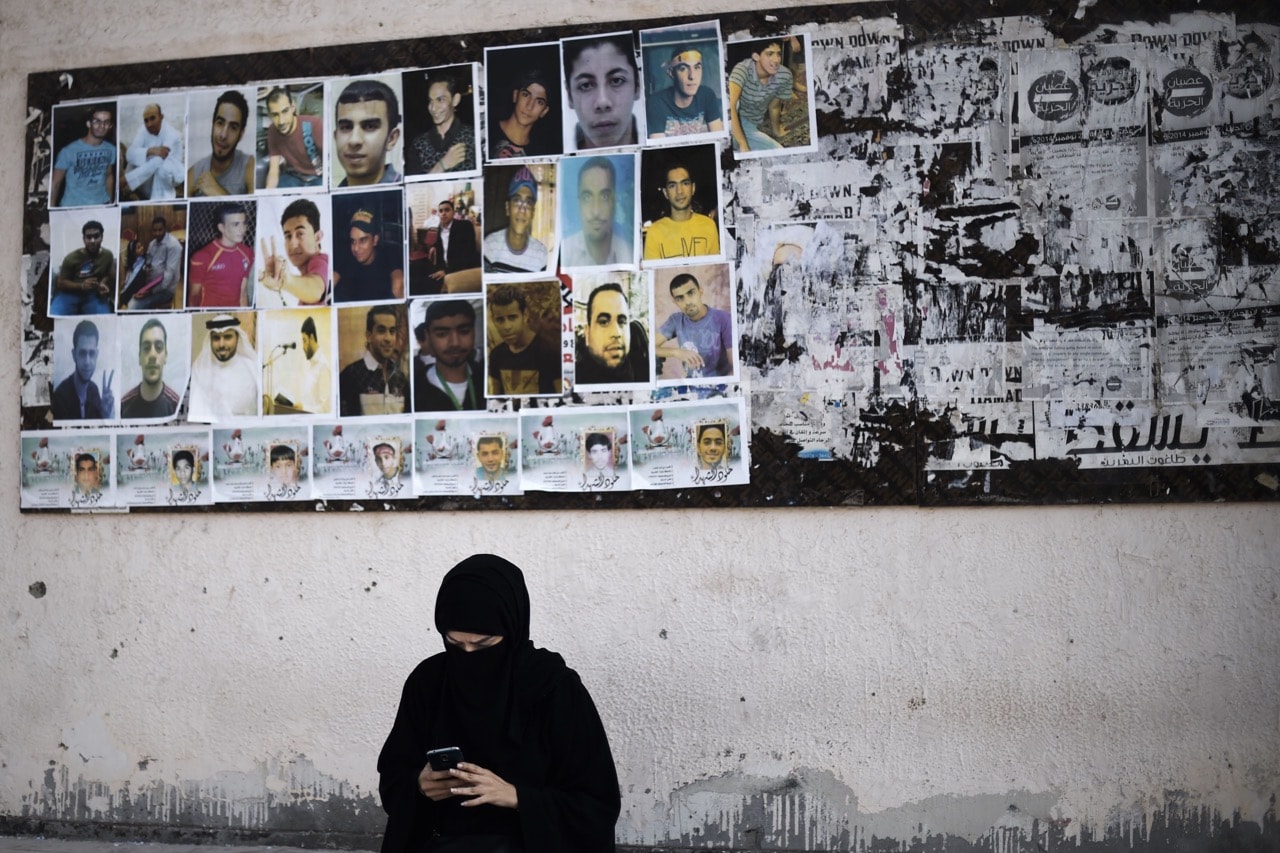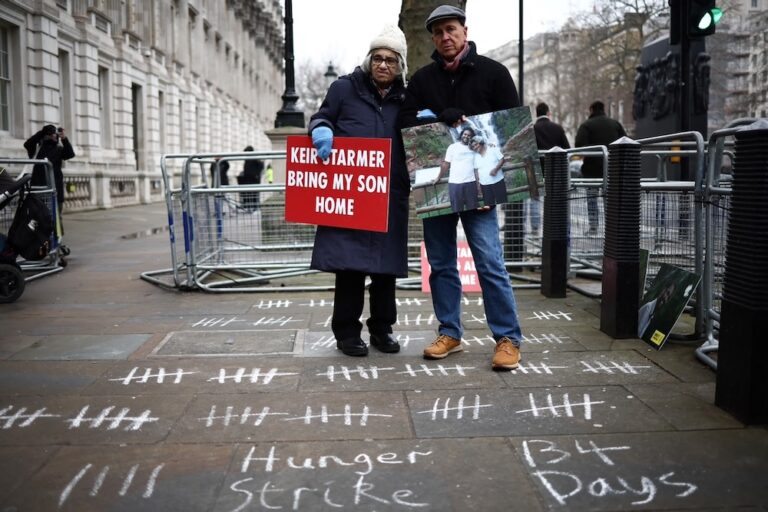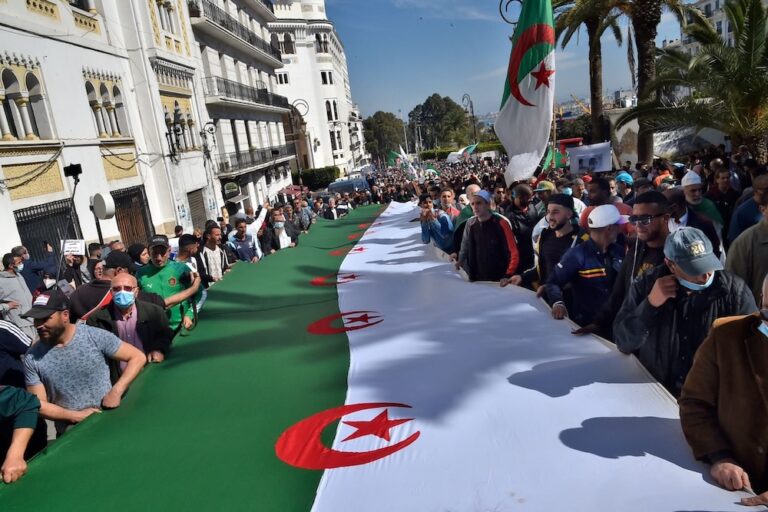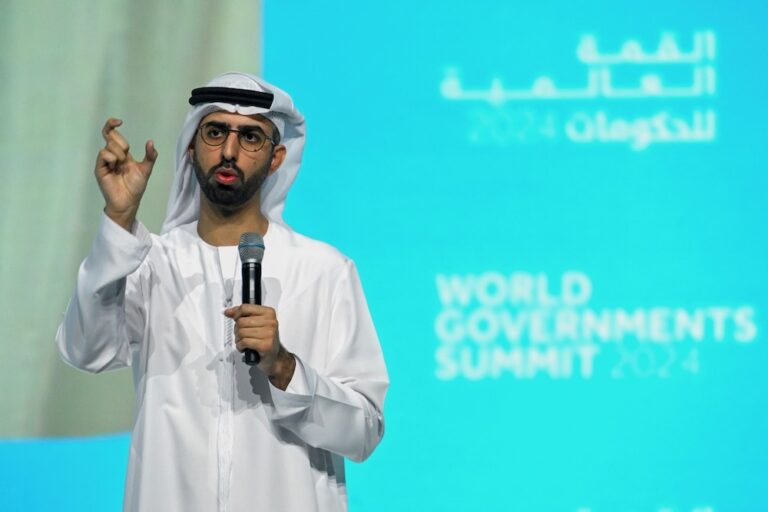The report is dedicated to defenders of freedom of thought and expression who defend human rights from governments' extreme repression.
This statement was originally published on gc4hr.org on 11 March 2019.
The Gulf Centre for Human Rights (GCHR) releases its seventh annual report on human rights activism in 2018, entitled Breaking Boundaries. On this day, we remember all the women and men human rights defenders imprisoned for their work across the region, particularly in Bahrain, Iran, Iraq, Kuwait, Oman, Saudi Arabia, Syria, the United Arab Emirates and Yemen. The report is dedicated to defenders of freedom of thought and expression who through their words defend human rights from governments’ extreme repression.
The report features a summary and case updates of 145 women and men human rights defenders across the Gulf and neighbouring countries as well as the legal and political developments relevant to human rights in these countries. Additionally, it summarises GCHR’s research, advocacy and capacity-building activities with regional and international partners.
In this report, GCHR recognises that despite increased restrictions on civic space and aggressive prosecution of human rights defenders, the boundaries crumbling since 2011 are worth celebrating. In the act of breaking these boundaries, solidarity networks nationally, regionally, and internationally have been nurtured and strengthened. With continued activism of journalists, human rights defenders and civil society, GCHR foresees that governments’ disrespect for human rights and freedoms in the region will be increasingly overturned.
The main focus of the report is to shed light on human rights activism. While governments intensified their harassment and prosecution of journalists, human rights defenders, online activists, and civilians, through the advocacy efforts of civil society on different fronts, the defence of human rights in the region has been met with international recognition, including many international awards for human rights defenders from across the Gulfand neighbouring countries.
The spotlight on governments, especially in the Gulf, unveiled the extent to which governments reject accountability to their people and commitment to human rights internationally. To mention a few examples: Bahrain denied the entry of United Nations experts along with extending travel bans on human rights defenders so they continue to miss UN Human Rights Council sessions. In Iraq, peaceful assembly was met with tear gas and live bullets to disperse the protests, leaving dozens killed and hundreds arrested. In Iran, well-known lawyers were among those sentenced to prison for defending women’s rights to reject forced hijab. And notoriously, Saudi Arabia arbitrarily arrested over 20 men and women who defend and advocate for women’s rights, even after the Kingdom formally lifted the driving ban on women.
Khalid Ibrahim, Executive Director of GCHR, says: “It is hard work to support human rights defenders and ensure their safety and security. Yet a success such as having the European Parliament formally and publicly denounce human rights abuses in Saudi Arabia in May 2018 and again in February 2019 shows the importance of diligence, solidarity and commitment to research- and evidence-based advocacy in the pursuit of defending human rights. Not to mention the attention facing Saudi Arabia at the UN Human Rights Council this month, where 36 States, including all EU Member States, called on 7 March 2019 for the release of detained women human rights defenders, sending a strong message to the Saudi authorities that the Council will hold its members accountable.”
GCHR presented a number of recommendations at the end of this report to governments, and the international community. Emphasis is placed on guarantees of a legal framework grounded in respect for human rights, especially for the freedom of expression and opinion, to protect the safety of journalists, media workers and online activists whom governments across the region relentlessly harassed, targeted, or prosecuted. Other recommendations are made to ensure the safety of civilians such as in conflict-zones, as well as in countries in transition where respect for freedom of association and assembly are essential for peace and justice.
To download the report, follow the link.



